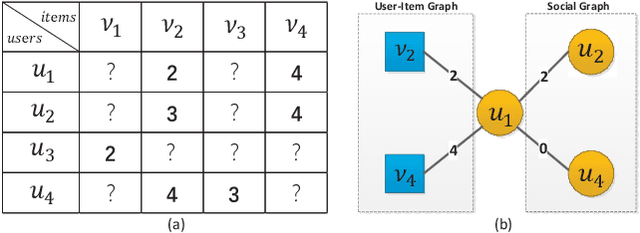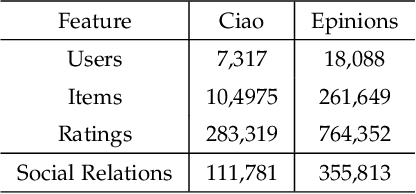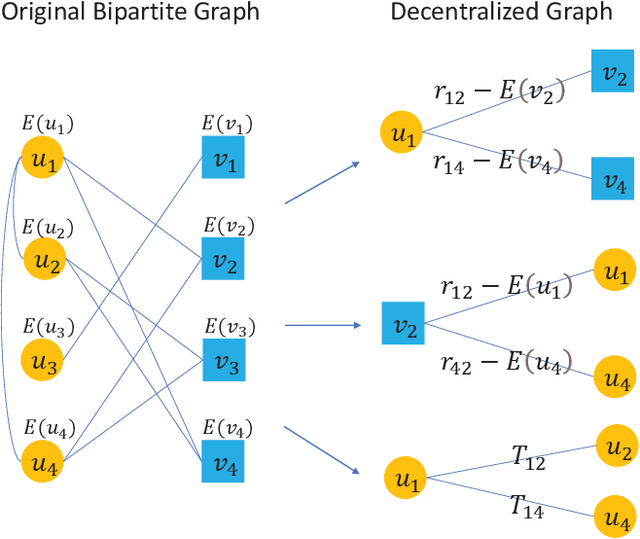GDSRec: Graph-Based Decentralized Collaborative Filtering for Social Recommendation
Paper and Code
May 20, 2022



Generating recommendations based on user-item interactions and user-user social relations is a common use case in web-based systems. These connections can be naturally represented as graph-structured data and thus utilizing graph neural networks (GNNs) for social recommendation has become a promising research direction. However, existing graph-based methods fails to consider the bias offsets of users (items). For example, a low rating from a fastidious user may not imply a negative attitude toward this item because the user tends to assign low ratings in common cases. Such statistics should be considered into the graph modeling procedure. While some past work considers the biases, we argue that these proposed methods only treat them as scalars and can not capture the complete bias information hidden in data. Besides, social connections between users should also be differentiable so that users with similar item preference would have more influence on each other. To this end, we propose Graph-Based Decentralized Collaborative Filtering for Social Recommendation (GDSRec). GDSRec treats the biases as vectors and fuses them into the process of learning user and item representations. The statistical bias offsets are captured by decentralized neighborhood aggregation while the social connection strength is defined according to the preference similarity and then incorporated into the model design. We conduct extensive experiments on two benchmark datasets to verify the effectiveness of the proposed model. Experimental results show that the proposed GDSRec achieves superior performance compared with state-of-the-art related baselines. Our implementations are available in \url{https://github.com/MEICRS/GDSRec}.
 Add to Chrome
Add to Chrome Add to Firefox
Add to Firefox Add to Edge
Add to Edge